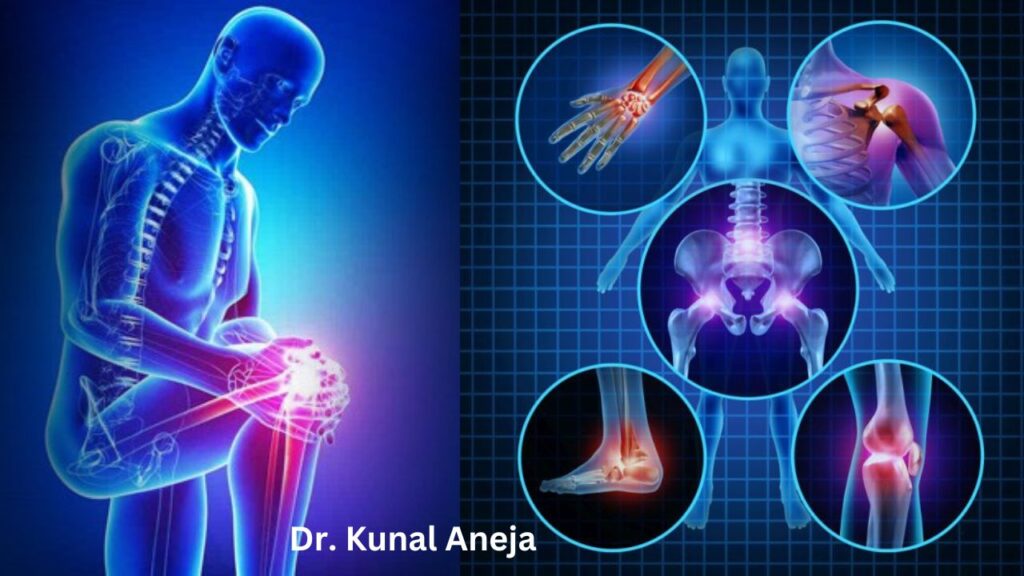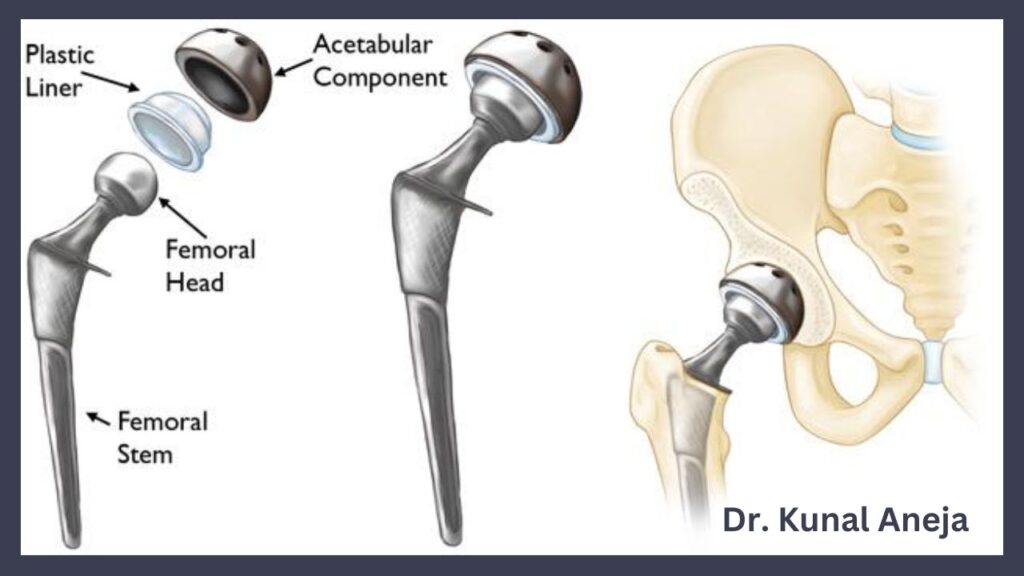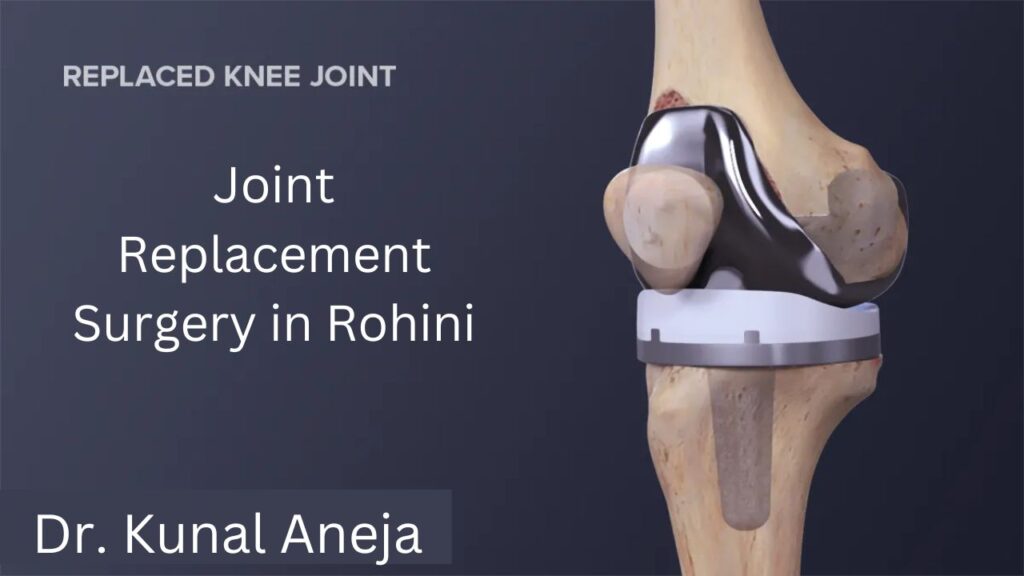
Knee Joint Replacement
As one of the planet’s best and most prestigious knee replacement hospitals in India with highly experienced doctors and surgeons, Naveda Healthcare Centre is the global leader in knee surgery. With a proven track record of success, Naveda Healthcare Centre is one of the most popular knee replacement hospitals.
Knee Replacement Centre with a World-Class Reputation
The name of Dr. Kunal Aneja is closely associated with Knee Replacement Surgery as the founder of Naveda Healthcare Centre, a quality health services establishment. Inventor of the OS needle, Dr. Shah introduced laminar air flow and body exhaust systems to the OT for the first time in India to perform knee joint replacement surgery. Today, the Naveda Healthcare Centre is considered to be India’s best knee replacement center,
If a patient has advanced end stage joint disease (typically the knee or hip) and has tried non-surgical treatment, but is still experiencing functional decline and painful symptoms, joint replacement surgery is typically recommended. Surgery for joint replacement is extremely effective when done when it is performed when it is necessary and indicated.
During a modern joint replacement surgery, the worn cartilage on both sides of the joint is removed, followed by the replacement of the worn cartilage with an implant made of metal and plastic that resembles the joint’s normal surface. It is possible to replace nearly every joint in the body, but the majority of the surgeries are performed on the hips or knees.
During the last 30 years, improvements in surgical techniques and the development of new implant materials have contributed greatly to the development of total joint replacements which is now one of the most reliable and durable procedures in any field of medicine.

hip Replacement
There are a number of successful hip replacement surgeries out there in India. The Surgery of the Hip Joint is a highly successful procedure that replaces the parts of the hip joint with prostheses (implants).
How does hip replacement surgery work?
An orthopaedic surgeon performs hip replacement surgery to relieve hip arthritis pain and stiffness caused by removal and replacement of the pelvis and femur (thighbone).
Adding a hip replacement to your health care plan may also be helpful if you have a broken hip or hips that have not grown properly. (Contact Dr, Kunal Aneja for a hip replacement specialist near you.)

What are the signs that you need a hip replacement?
A hip replacement may be a good option if you have any of the following arthritis symptoms:
An inability to sleep, work, or perform everyday activities due to severe hip pain that cannot be relieved by medication
Restricted hip motion and difficulty walking as a result of hip stiffness
Get more information about hip replacements by reading Here’s What to Know About Hip Replacements.
Analyses of the hip
Hips serve as a ball-and-socket joint that is made up of the ball at the top of the femur (thighbone) and the socket at the bottom that is part of the pelvis. It is the ball that moves in and out of the socket and allows your leg to rotate and move forward, backward, and sideways. The ball moves within the socket, allowing your leg to rotate as well as move forward, backward, and sideways.
As a result of this cartilage covering the ball and socket of the hip, it makes it easier for them to glide together smoothly, so when this cartilage gets worn down, the bones start scraping against one another and becoming rough. It is known as osteoarthritis when it restricts motion and causes pain. If you have been diagnosed with hip arthritis, you may not need surgery if it is just your hip. An arthritic hip can make it difficult for you to get in and out of a chair. There is a possibility that nonsteroidal anti-inflammatory drugs (NSAIDs) and/or physical therapy will be sufficient to relieve symptoms. However, if these approaches do not provide relief, an orthopedic surgeon should be consulted.

What should I do to prepare for my hip replacement surgery?
The instructions and guidance provided by your orthopedic surgeon, medical team, and rehabilitation therapist should be followed to improve recovery time and results. You can find out how to prepare for your surgery by visiting Preparing for Your Surgery. You can also find out how to prepare for a joint replacement by attending preoperative classes.
What is the lifespan of hip implants?
A hip prosthesis for replacement is generally considered to last for between 12 and 22 years, with some having a lifespan up to 35 years or more.
A study carried out in 2008 of more than 55,000 patients who had a THR surgery at an advanced age of 55 or older showed that between 70% and 90% of these patients still had well-functioning implants since their surgery 15 years ago, depending on the type of implant and the patient’s age.
It is called hip revision surgery when a hip implant has become loose or worn out and needs to be replaced.

Is it safe to drive after surgery?
Six weeks after surgery, most patients are able to drive again.
How should I choose a hip replacement surgeon?
Do your research and check the credentials, experience, and reputation of the orthopedic surgeon you are considering for your hip replacement surgery. In addition, you should research the hospital or facility where your operation will take place, along with its staff, such as anesthesiologists.
As a result of a study conducted , patients were interviewed to find out how successful hip replacement surgery was. A total of 99.6% of patients reported relief from pain two years after their surgeries, 99% said they were able to move better, and 97.8% said they had a better quality of life.

